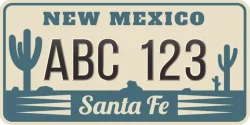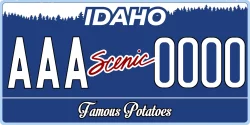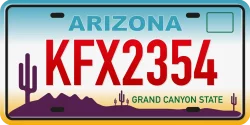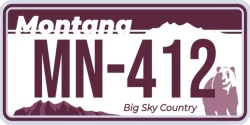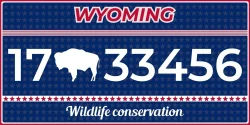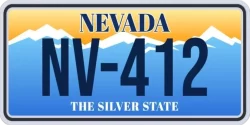Home » IRS Mileage Rates by State » Colorado Mileage Rate
Last updated: October 2, 2025
The IRS Mileage Rate Colorado matters because every reimbursable mile can lower your tax bill. Logging miles is tougher in Colorado than it looks: winter storms on I-70, ski traffic bursts, and spread-out clients from the Front Range to the Western Slope make consistency a challenge. Many drivers juggle multiple worksites, long corridors, and mixed terrain, so forgetting to log a trip is easy—and costly.
In this guide, you’ll learn the IRS rate Colorado in 2025, state-specific reimbursement realities, and discover how MileageWise can help to get the most out of the tax deduction.

Table of Contents
Summary
- 2025 IRS Mileage Rates: Business $0.70/mi, Medical/Military Moving $0.21/mi, Charitable $0.14/mi.
- Exploring Deduction Potential: Even a single Front Range day can be worth over a hundred dollars in tax-deductible mileage.
- Local Law Snapshot: Colorado state employees have 2WD $0.63/mi and 4WD $0.67/mi reimbursement; private employers typically follow IRS standards, but they’re not required to by law.
- MileageWise Solution: Import your Google Maps Timeline to rebuild an IRS-compliant log in minutes and avoid painful manual reconstruction.
How Much Can You Save in a Day? Business Mileage Deductions in Colorado
Denver → Colorado Springs (70 mi)
Colorado Springs → Pueblo (45 mi)
Pueblo → Denver (115 mi)
Total: 230 mi
Deduction: 230 × $0.70 = $161.00
Boulder → Longmont (15 mi)
Longmont → Westminster (26 mi)
Westminster → Boulder (21 mi)
Total: 62 mi
Deduction: 62 × $0.70 = $43.40
Colorado Reimbursement: What You Can’t Afford to Miss
For 2025, Colorado state mileage reimbursement rates are as follows: two-wheel-drive (2WD) vehicles are reimbursed at $0.63 per mile, while four-wheel-drive (4WD) vehicles are reimbursed at $0.67 per mile. These rates apply specifically to state government employees and represent 90% and 95% of the 2025 IRS mileage rate, respectively.
Although private sector employers aren’t legally required, many choose to align with the IRS standard rates to help cover the costs of fuel, vehicle maintenance, and wear and tear.
Typically, mileage between an employee’s home and their primary work location is not reimbursed on regular workdays.
This page is informational, not legal or tax advice—if you need guidance for your specific situation, consult a tax professional. Further general info on rates: IRS Mileage Rates page.
2025 Mileage Rate
- Business Mileage Rate: The IRS standard business rate is $0.70/mi.
- Medical/Military Moving Mileage Rate: For qualified medical travel and active-duty military moving, the rate is $0.21/mi.
- Charitable Mileage Rate: For service to qualified charities, the rate is $0.14/mi.
What Can You Expect from the IRS Mileage Rate in Colorado?
| Route (one-way) | Approx. miles | 2025 value |
|---|---|---|
| Denver → Boulder | 28 mi | $19.60 (RT $39.20) |
| Denver → Colorado Springs | 70 mi | $49.00 (RT $98.00) |
| Fort Collins → Nunn | 22 mi | $15.40 (RT $30.80) |
| Grand Junction → Montrose | 62 mi | $43.40 (RT $86.80) |
| Pueblo → Trinidad | 85 mi | $59.50 (RT $119.00) |
| Aurora → Denver International Airport | 17 mi | $11.90 (RT $23.80) |
| Lakewood → Golden | 7 mi | $4.90 (RT $9.80) |
| Colorado Springs → Pueblo | 45 mi | $31.50 (RT $63.00) |
| Aspen → Glenwood Springs | 41 mi | $28.70 (RT $57.40) |
| Durango → Pagosa Springs | 60 mi | $42.00 (RT $84.00) |
The calculations are based on the 2025 business rate: $0.70 per mile.
Exploring Colorado’s Regions: How Driving Conditions Differ
- Front Range Urban Corridor (Fort Collins–Denver–Colorado Springs): Expect stop-and-go congestion, tight appointment windows, and frequent multi-stop days across sprawling suburbs. I-25 construction and peak-hour surges can stretch short hops into longer trips. Winter cold snaps can slow traffic.
- Rocky Mountains/High Country (I-70 corridor, ski towns): Elevation, grade, and snowpack change how you plan drives; chain/traction laws and sudden closures can force reroutes. Weekend ski traffic can triple travel times, especially near Eisenhower/Johnson Tunnels and Vail Pass. Shoulder seasons bring fewer crowds but more unpredictable weather. Wildlife crossings are frequent at dawn and dusk.
- Western Slope and Eastern Plains: Longer two-lane stretches mean steady cruising but fewer services—plan fuel and charging stops ahead. High winds and summer storms on the Plains can affect scheduling and safety margins. In the southwest (Durango–Pagosa–Cortez), mountainous terrain makes “short” distances slow. These realities make disciplined mileage logging essential.
Which Workers Benefit the Most from Mileage Reimbursement?
- Real estate agents and property managers
- HVAC, solar, electrical, and plumbing technicians
- Home health nurses, physical therapists, and mobile clinicians
- Construction project managers and site supervisors
- Field sales reps (software, medical device, industrial supplies)
- Oil and gas field technicians (e.g., Weld County)
- Outdoor guides/outfitters and nonprofit coordinators

Solving Driving Challenges with MileageWise Solutions
Colorado drivers face a unique mix of urban congestion, mountain passes, and long intercity legs—one missed log today can snowball into lost dollars at tax time. Front Range professionals often bounce between downtowns and suburban campuses, while Western Slope crews cover vast territories on two-lane roads. Ski-town contractors may work off-peak but travel long distances with variable conditions. That’s why your mileage system must handle both high-frequency short hops and infrequent but long mountain drives. This is especially important, as reimbursement is only available if you have an accurate mileage log.
MileageWise offers three targeted solutions for every situation with the IRS Mileage Rate for Colorado in mind.
1. Google Maps Timeline Import:Import Your Past Trips
First, the Google Maps Timeline Import transforms your Timeline into a clean, IRS-compliant mileage log—ideal for catching up after a hectic quarter. Even if you forgot to track during snowy weeks or ski traffic outages, you can import your data and instantly structure drives into a professional report.
2. No Timeline? Use the AI Wizard to rebuild
The AI Wizard Mileage Log Generator analyzes your patterns—think Denver client circuits, I-25 site-to-site trips, or I-70 mountain visits—and fills gaps with realistic, compliant routes. It’s a lifesaver when your Timeline is missing. Instead of guessing last month’s miles, let the AI handle reconstruction so you can move forward confidently.
3. MileageWise Mileage Tracker App: Track, log, and manage your mileage
For the future, our mileage tracker app tracks drives precisely without ads or battery drain. Whether you’re shuttling between Boulder and DTC or making Western Slope site runs, the app captures every mile you’re owed. A few taps produce audit-ready logs tailored to the IRS Mileage Rate for Colorado. Save time, reduce stress, and maximize deductions on autopilot.
A Quick Story from Colorado: Local Impact
A Denver-based home inspector covers Lakewood, Aurora, and Castle Rock, and a busy winter plus storm delays knocked his routine off track. He realized he had six weeks of missing business miles. With MileageWise’s Google Maps Timeline import feature, he pulled in his past drives in minutes and converted them into an IRS-compliant report. He filed on time, captured hundreds of dollars he would have lost, and now tracks automatically going forward.
Conclusion
Colorado’s diverse driving landscape—ranging from urban corridors to alpine passes and long rural stretches—requires a mileage tracking system that’s always on point. The stakes are high: every mile documented can lead to fair reimbursement or a reduced tax bill.
To make all of this easy, MileageWise gives you three solutions:
- The Google Maps Timeline Import feature repairs your past.
- The AI Wizard Mileage Log Generator reconstructs missing trips when Timeline isn’t available.
- And the MileageWise mileage tracker captures every mile moving forward—no ads, no hassle.
If you’ve ever felt behind on logging, you’re not alone—and you don’t have to fix it manually. Start by importing what you already have, then automate the rest. The result is peace of mind, audit-readiness, and maximized deductions. Your miles in Colorado are valuable; treat them like it. Get compliant, stay consistent, and make the IRS Mileage Rate for Colorado work for you.
AI Logs & Google Timeline Import
Try MileageWise for free for 14 days. No credit card required!
FAQ
What are the 2025 IRS mileage rates?
Business rate:$0.70/mi; Medical/Moving (active-duty military) rate: $0.21/mi; Charitable rate: $0.14/mi.
Does Colorado require employers to use the IRS rate in private sector?
Not in the private sector; many employers choose the IRS rate to fairly cover costs, but it isn’t mandated.
Are tolls and parking included in the mileage rate?
No. Tolls and parking are separate business expenses; record them alongside your mileage.
Do EVs and hybrids qualify for the IRS mileage rate?
Yes. The standard mileage rate applies regardless of fuel type.
Is commuting deductible or reimbursable?
Generally no. Home ↔ primary workplace trips are commuting and typically not deductible or reimbursable.
How does the Google Maps Timeline Import help me?
It converts your existing Timeline into an IRS-compliant mileage log, filling your past without manual data entry.
What if my Timeline is missing or incomplete?
Use MileageWise’s AI Wizard Mileage Log Generator to reconstruct past trips with realistic, compliant routes tailored to your driving patterns.



